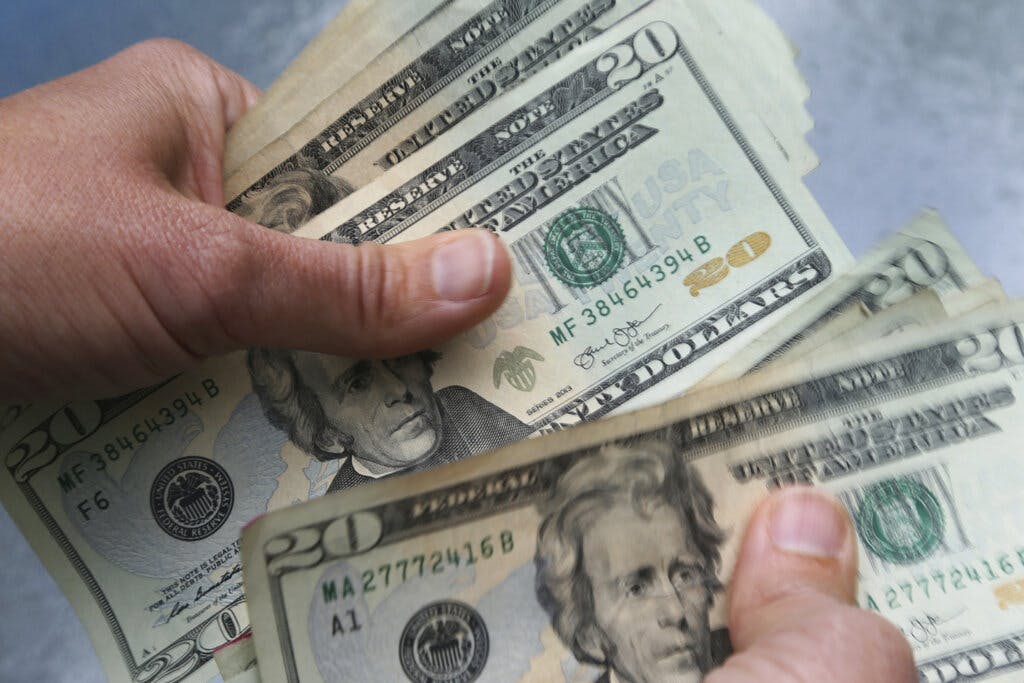Conservatives in Congress Scramble To Block Creation of Digital Dollar by Federal Reserve
It is no coincidence, critics of digital currencies say, that authoritarian China leads the world in development of a central bank digital currency.

In an indication of the growing unease among conservatives over the prospect of America issuing its own central bank digital currency, a top Republican lawmaker introduced a bill Wednesday that would limit the Federal Reserve’s ability to develop or offer a so-called digital dollar to American consumers.
The House majority whip, Tom Emmer, a top ally of cryptocurrency advocates on Capitol Hill, introduced the CBDC Anti-Surveillance State Act to prevent the central bank from offering “products or services directly to an individual” — effectively banning a retail digital currency — or using a digital dollar to “implement monetary policy.”
Mr. Emmer, generally a proponent of cryptocurrencies, was one of the first members of Congress to warn of the dangers that a digital currency managed by the Federal Reserve poses to civil liberties. He introduced a similar bill in 2022. Wednesday’s bill is an updated version of the earlier measure and is intended to prevent “unelected bureaucrats in Washington, D.C., from stripping Americans of their right to financial privacy,” he said.
“Any digital version of the dollar must uphold our American values of privacy, individual sovereignty, and free market competitiveness. Anything less opens the door to the development of a dangerous surveillance tool,” he added in a post on Twitter.
The Biden administration has tasked the chairman of the Federal Reserve, Jerome Powell, with studying the risks and benefits of a digital dollar, but in testimony before Congress he has made it clear that it will be up to lawmakers to outline exactly what a rollout would look like.
“It’s a very important potential financial innovation that will affect all Americans,” Mr. Powell told the House Committee on Financial Services last summer. “Our plan is to work on both the policy side and the technological side in coming years and come to Congress with a recommendation at some point.”
Dozens of countries around the world are exploring the possibility of creating digital currencies using the same blockchain technology that underpins bitcoin and other cryptocurrencies. As more and more financial transactions occur on digital apps like Venmo and Apple Pay, the temptation for central banks is to rush into the business of allowing these transactions to maintain the safety of the country’s monetary system and reduce transaction costs.
Unlike bitcoin and other cryptocurrencies that have no central authority controlling them, however, a digital dollar based on blockchain technology could conceivably remain tightly controlled by the central bank. For civil libertarians, such a prospect is borderline dystopian. A central bank obsessed with climate change could theoretically limit someone’s ability to use those digital dollars to purchase gasoline, say, or insist that a tax refund issued in digital dollars only be used to pay for solar panels on someone’s home.
It is no coincidence, these critics say, that authoritarian China leads the world in development of a central bank digital currency. China began its first wide-scale tests of its digital yuan, known as e-CNY, in 2020 and has since expanded those trials in several provinces. China’s aggressive uptake of the idea is rooted largely in the growth of private-sector players such as Alipay and WeChat Pay, which have eroded the government’s control of its citizens’ finances.
The chief strategy officer at the Human Rights Foundation, Alex Gladstein, has warned that centralized control of digital currencies represents a serious threat to the individual rights of people living under authoritarian regimes like China’s. “The end of cash and the insta-analysis of financial transactions enable surveillance, state control, and, eventually, social engineering on a scale never thought possible,” Mr. Gladstein wrote in 2021.
The issue has become so salient among conservatives that the latest entrant in the presidential race, Vivek Ramaswamy, a biotech CEO, has made it a cornerstone of his platform. “I have a one-word answer to central bank digital currencies: NO,” he said on Twitter earlier this week. “The fact that China is doing it isn’t a reason to do it too. It’s a reason to ask why exactly the CCP is doing it & make sure our government doesn’t copy them in turn.”

